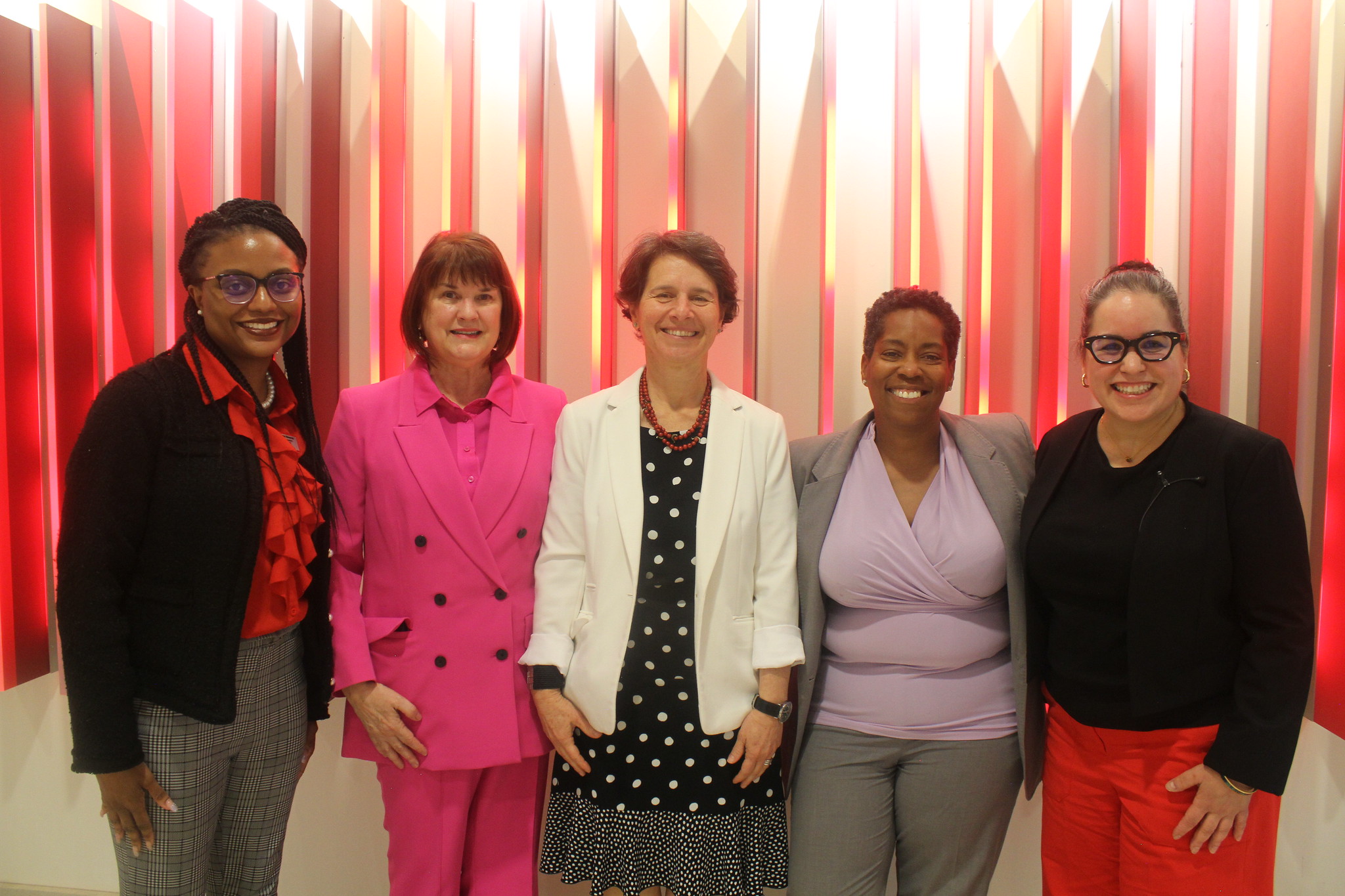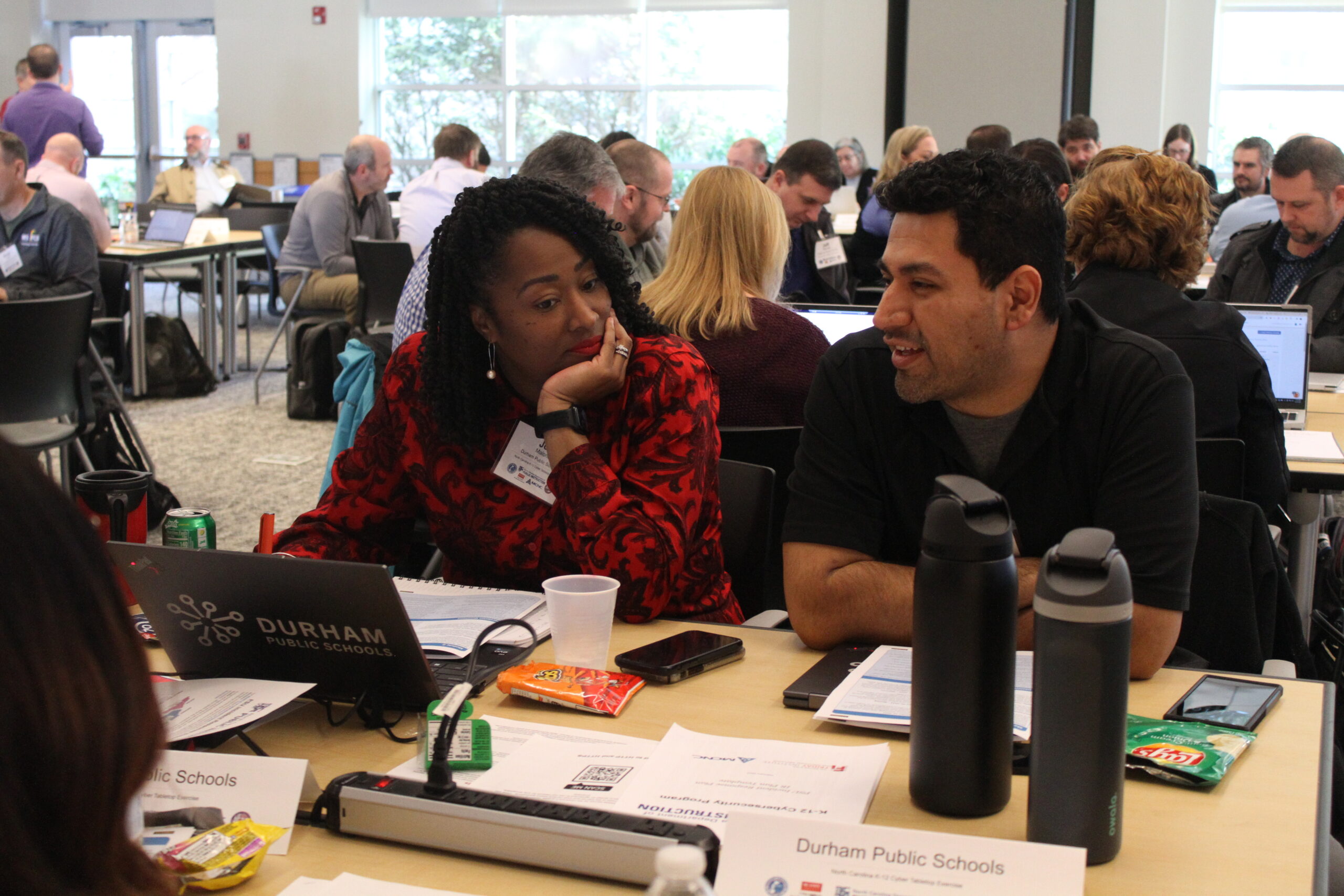NSF Grant Will Broaden Project-Based Inquiry (PBI) Global to Include STEM Learning Through An NC Rural/Urban School Partnership

Hiller Spires, Ph.D., has spent over a decade preparing students for the global, digital world using inquiry-based projects, and now she’s expanding her work through a new grant to include STEM learning in the process.
Spires, NC State College of Education Alumni Distinguished Graduate Professor, Friday Institute for Educational Innovation faculty fellow and principal investigator, and co-principal investigator Erin Krupa, Ph.D., assistant professor of mathematics education at the College of Education, have been awarded a two-year, $450,000 grant from the National Science Foundation.
The grant will expand Project Based Inquiry (PBI) Global, an inquiry-based instructional process, to address STEM learning through a rural/urban classroom collaboration at two schools in North Carolina: Wake STEM Early College High School and Person County Early College for Innovation and Leadership. The schools were chosen to be a part of this project because of their culturally diverse student populations and their early college model, which prepares diverse students from populations underrepresented in STEM fields, including first-generation college students.
PBI Global connects students around the world to solve global problems through interdisciplinary projects. Projects always start with a compelling question based on the United Nations Sustainable Development Goals, and then they connect students across cultures and locations to ask compelling questions; gather and analyze sources; creatively synthesize claims and evidences; critically evaluate and revise; and share, publish and act. Key features of the project are its emphasis on student centered and interdisciplinary learning.
“The project is student centered,” Spires said. “We give the students space and time to come up with what they want to conduct their inquiry on so there will be an emotional, social connection, as well as a link to what they’re passionate about. That’s what we’ve found drives student engagement and project quality. If students don’t feel passionate about their topic, it’s a challenge for them to create quality work products.”
Although PBI Global has historically focused on humanities topics, this new grant will help Spires and Krupa meet the need for research-informed and field-tested inquiry-based products for STEM curriculum, which is in high demand as educators are looking for ways to build the critical skills needed for the future workforce, including collaboration, communication and problem solving.
“An overwhelming number of the jobs of tomorrow will require more advanced STEM content, and most of these jobs have not even been invented yet,” Krupa said. “We are teaching our children to keep up with the growing demands of the workforce, while also educating them to understand the world in which they live.”
Spires saw a natural fit for PBI Global to meet this need to develop competent global citizens through STEM education.
“Inquiry has long been associated with science. But there are a few key elements that make this project different,” Spires said. “We’re nesting argumentation and literacy within the inquiry process, it is student centered, and we are conducting the project on the theme of global water and sanitation, which is one of the U.N. Sustainable Development Goals.
“I like to ask the question, ‘What would happen if all teachers and students across the globe focused on the 17 U.N. Sustainable Development Goals?’” Spires added. “I believe we would empower the next generation of young people who not only understand the most enduring global challenges of our time but would have the confidence and expertise to solve them.”
This grant will provide the opportunity to quantitatively measure the impact of PBI Global on students for the first time by assessing through pre- and post-tests what impact this process has on students’ science content learning. Spires and Krupa will use a design-based research (DBR) approach to develop and refine instructional materials, and teacher professional development for the existing interdisciplinary PBI Global initiative. They will also investigate factors influencing student motivation and engagement as well as teacher attitudes toward inquiry-based pedagogy.
Partner schools will implement the PBI Global project with their students in February, after spending this semester engaging in professional development. The project will focus on 9th grade physical, biological and environmental science content knowledge and science and engineering practices. Students from both schools will have the opportunity to work together across time, space and cultures while being immersed in science content through globally relevant learner-centered activities. Likewise, English, history and math teachers will collaborate to create a dynamic interdisciplinary learning experience for the students.
- Categories:

